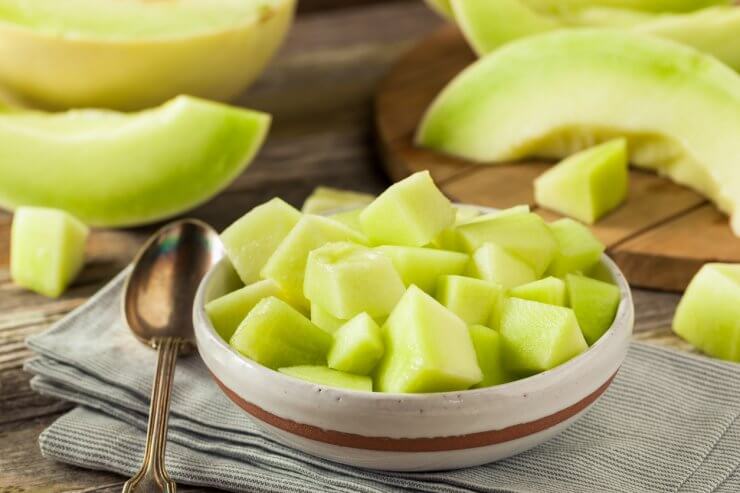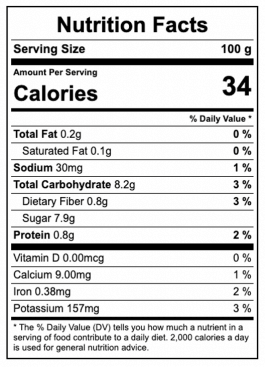
Nutritious honeydew melon in a bowl
Melons are packed with refreshing water and a wide range of beneficial nutrients. But here’s the thing: no two varieties of melon are exactly the same. They’re all similar in their nutritional profiles, but there is an amount of variation from one variety to another. So, as an example, we’re going to use the American Cantaloupe, since it’s one of the most commonly available melons and one of the most popular at the breakfast table.
Here is the nutrition information for 100 grams of cantaloupe, about 2/3 of a cup of cubes, slices, or balls:

A single cantaloupe is almost 90 percent water. Eating cantaloupe can keep you hydrated while you’re getting an additional nutritional boost.
Here are some of the compounds in melons:
Vitamin C: The vitamin C in melons is an antioxidant necessary for immune system and skin health. And it provides you with 100%-plus of your daily recommended intake. Vitamin C is essential to the production of healthy blood vessels, cartilage, muscle, and collagen in your bones.
Beta carotene: Cantaloupes and other orange-fleshed melons are excellent sources of beta carotene, which provides vitamin A. One cup of cantaloupe can provide about half your daily vitamin A requirement. Vitamin A is essential for healthy eyes, healthy red blood cells, and a healthy immune system.
Folate (vitamin B9): This is important for normal tissue growth and cell function and is fundamental for pregnant women and older adults.
Potassium: This mineral is involved in many essential body functions, such as regulating blood pressure.
Cantaloupe also contains vitamins K and B3, calcium, manganese, phosphorous, copper, selenium, and zinc. Wouldn’t it be more fun to have some fruit salad rather than reach for a vitamin? Cantaloupes make getting your vitamins and minerals delicious!
Did you know all these nutrition facts about melons? Please tell us what you think.


 Previous
Previous

